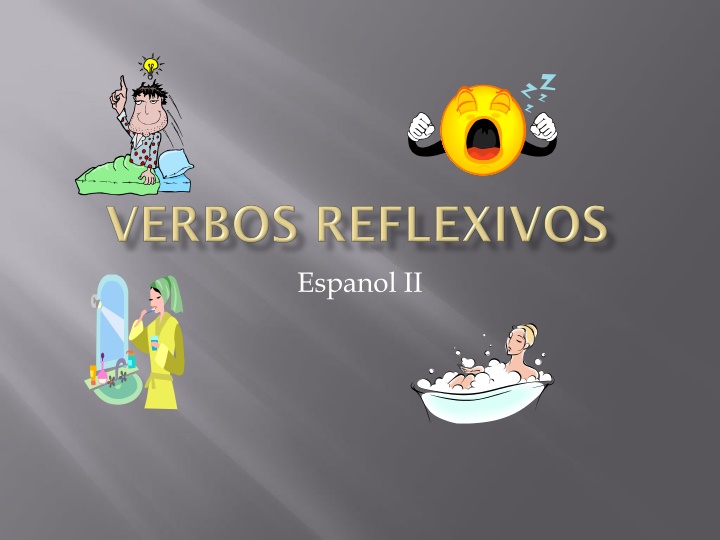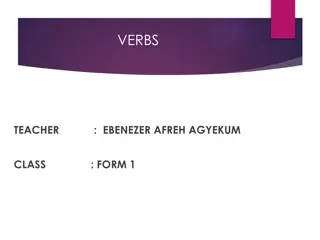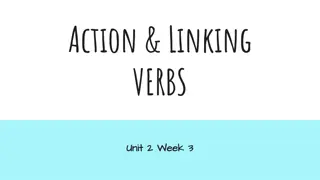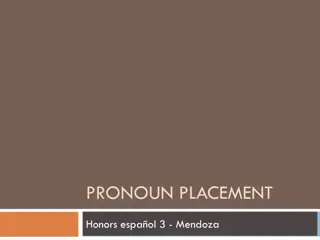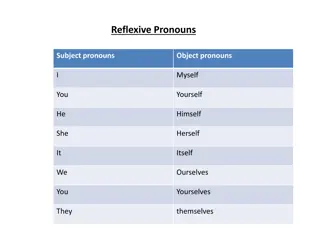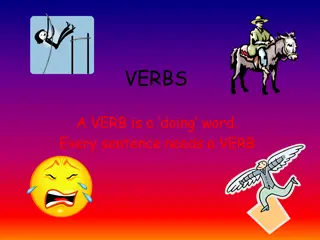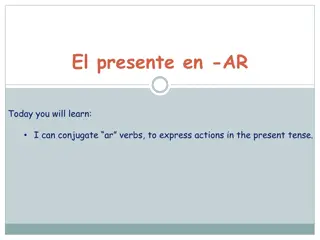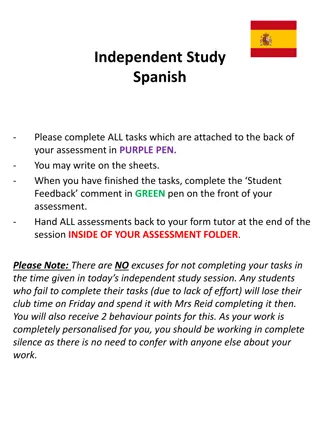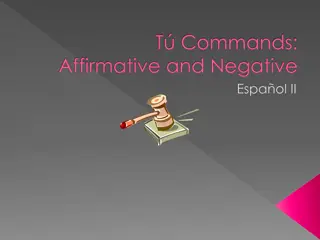Reflexive Verbs in Spanish
Reflexive verbs in Spanish are used when the subject both performs and receives the action, reflecting it back to the subject. Examples and conjugation of common reflexive verbs are provided, emphasizing the proper use of reflexive pronouns.
Download Presentation

Please find below an Image/Link to download the presentation.
The content on the website is provided AS IS for your information and personal use only. It may not be sold, licensed, or shared on other websites without obtaining consent from the author.If you encounter any issues during the download, it is possible that the publisher has removed the file from their server.
You are allowed to download the files provided on this website for personal or commercial use, subject to the condition that they are used lawfully. All files are the property of their respective owners.
The content on the website is provided AS IS for your information and personal use only. It may not be sold, licensed, or shared on other websites without obtaining consent from the author.
E N D
Presentation Transcript
In English, reflexive verbs are used in situations where the subject both performs and receives the action. The action is reflected back to the subject. Here are some examples:
In Spanish, reflexive verbs serve the same purpose. They are used more often in Spanish and they are easily recognized because they use reflexive pronouns. In the infinitive forms, they are attached to the end of the verbs. When conjugated, they are placed before the conjugated forms of the verbs. The reflexive pronouns are as follows: me te se nos -------- se
acostarse (o>ue): to go to bed afeitarse: to shave ba arse: to take a bath cepillarse: to brush (one s hair, teeth, etc.) despertarse (e>ie): to wake up dormirse (o>ue): to fall asleep ducharse: to take a shower irse (irregular): to go away lavarse: to wash oneself 10. levantarse: to get out of bed; to stand up 11. llamarse: to call oneself, to be named 12. maquillarse: to put on makeup 13. peinarse: to comb one s hair 14. ponerse: to put on 15. secarse: to dry (off) 16. vestirse (e>i): to get dressed 1. 2. 3. 4. 5. 6. 7. 8. 9.
To conjugate reflexive verbs, we use the correct pronoun for each subject, put it out front, and then conjugate the verb normally. We must be careful of irregular verbs! Let s conjugate ba arse. me ba o nos ba amos te ba as -------- se ba a se ba an
Lets conjugate acostarse. Careful its o>ue! me acuesto nos acostamos te acuestas -------- se acuesta se acuestan Let s conjugate irse. Careful it s super irregular! me voy nos vamos te vas -------- se va se van
The children take a bath. 1. You wake up at seven in the morning. 2. I wash my face at night. 3. She brushes her teeth twice a day. 4. We get dressed before breakfast. 5.
Use reflexive pronouns and verb forms but do not have the meaning of a person doing an action. These verbs often describe a change in mental,emotional or physical state. gets or becomes Aburrirse to get bored enojarse to become angry Casarse to get married ponerse(o-u) (furioso) to become furious Divertirse to have fun volverse loco to go crazy Dormirse to fall asleep Se durmieron durante la pel cula Se puso alegre despu s de ganar
